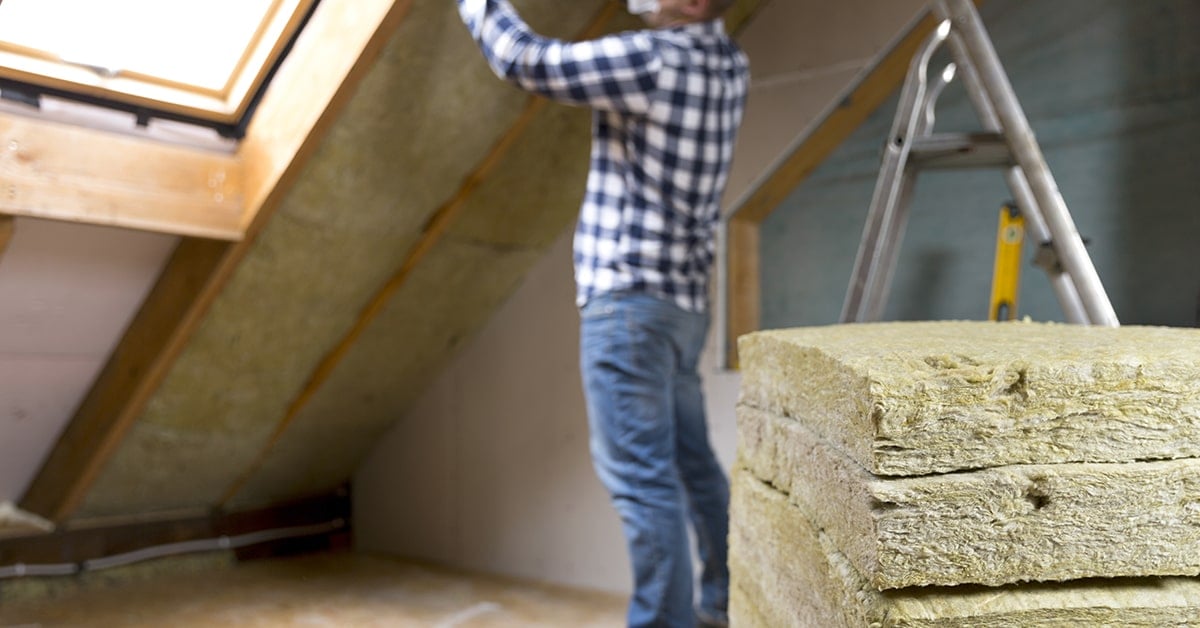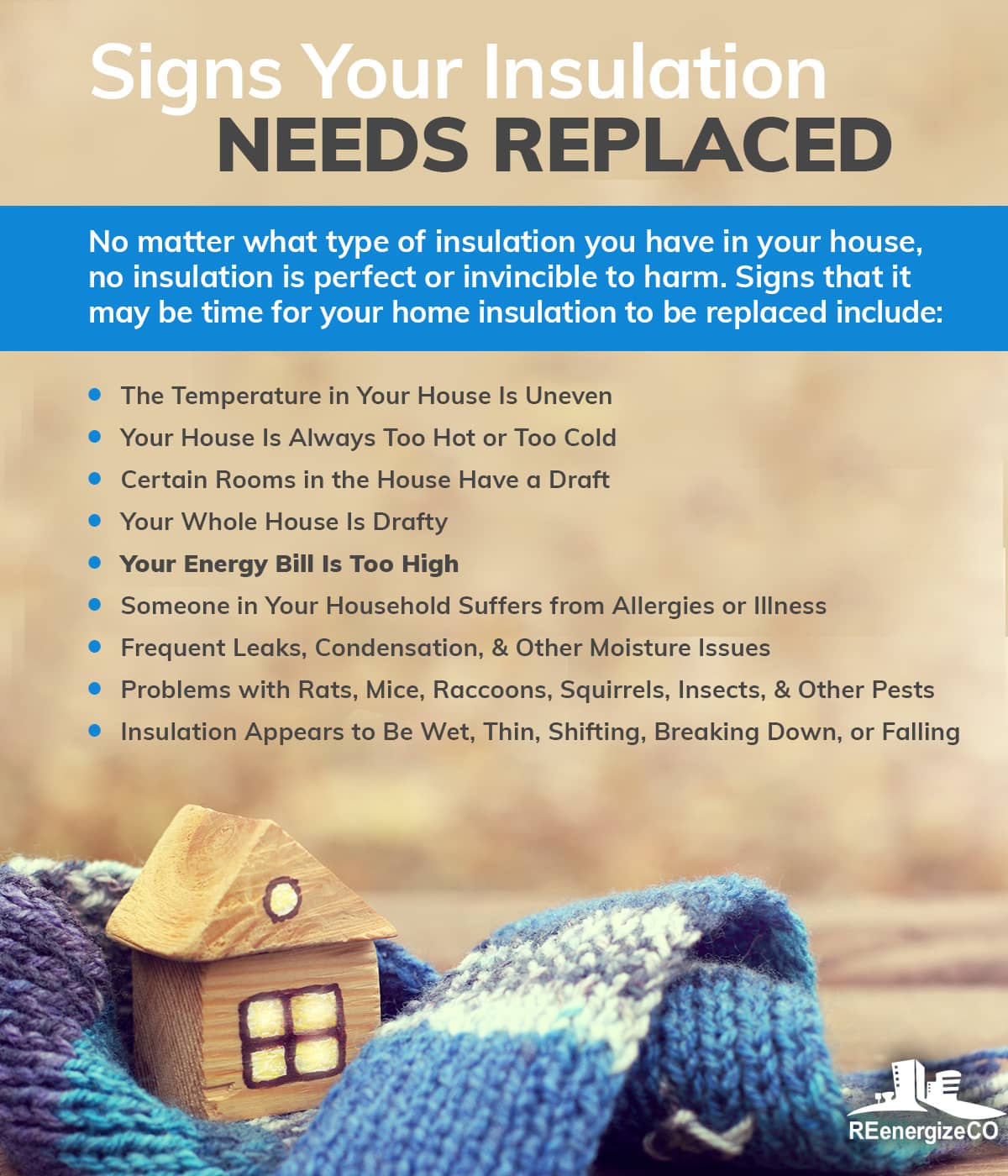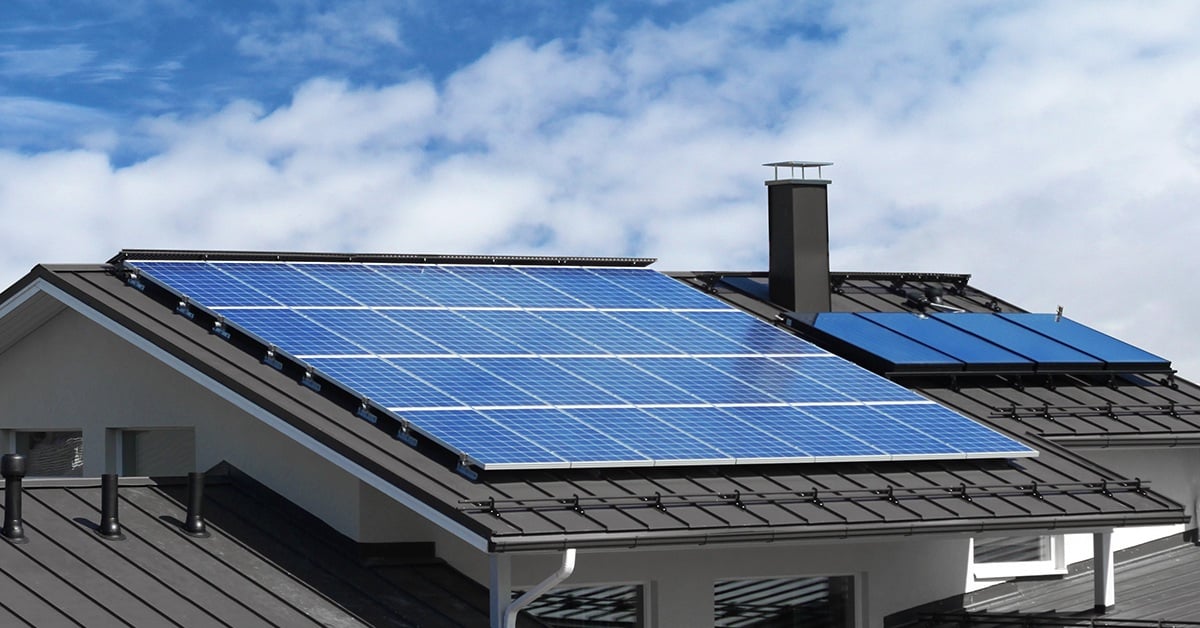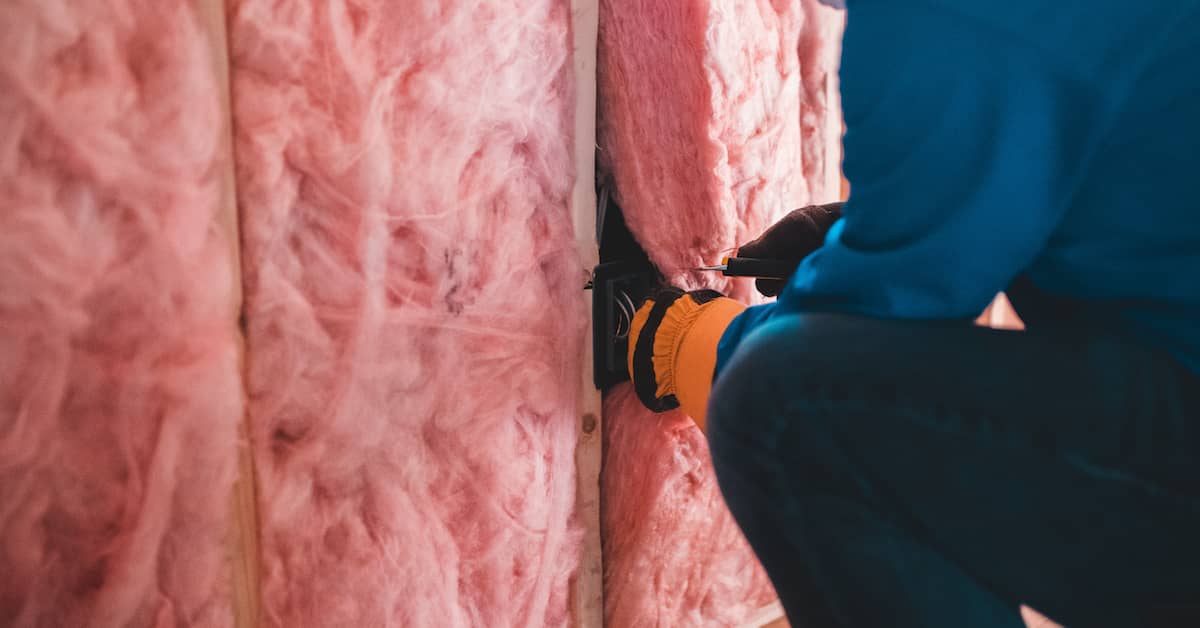
When to Replace Your Home Insulation
When your home insulation starts to wear out, you’re in for problems. Some of those problems are nuisances — a drafty house, for example. Others can hit your wallet in the form of high energy bills… or they may even threaten your health, thanks to rodents, allergens, and mold. So how do you know if your home insulation needs to be replaced? Let’s start by looking at the specific type of insulation inside your house, and then we’ll turn to the factors that can weaken insulation (and the signs that something’s wrong).
What Kind of Insulation Do You Have in Your Home?
Different types of insulation have different lifespans. Do you know what kind of insulation you have in your house? If so, use these average lifespans as a general timeline for replacement:
Spray Foam (Polyurethane Foam)
Spray foam insulation is one of the most durable, effective, and reliable forms of home insulation. It can last a lifetime or longer. Because it is mold resistant and does not hold moisture, it doesn’t move around and typically stays put until physically removed.
Many people never have to replace their spray foam insulation. But if inclement weather, critters, construction, or other factors have compromised your spray foam insulation — or if you are experiencing problems — you may need replacement or repair.

Fiberglass Insulation
Fiberglass insulation is a popular choice because it is both effective and cost-effective. Unless damaged, it can last 80 to 100 years in most houses before it needs to be replaced. However, insulation can start falling from fiberglass batts after 15 to 20 years, so if your insulation was installed in batts well over a decade ago, it might be time for an inspection or a home energy audit.
Cellulose Insulation
Cellulose insulation is eco-friendly and more effective at blocking air than some other types of insulation. Some studies have even shown that cellulose insulation can help to protect your home in a fire.
Because it is made primarily of recycled materials, however, cellulose insulation does degrade over time. The typical lifespan is 20 to 30 years, with degradation beginning as early as 15 years after installation.
As with other types of insulation, severe weather or outside interference can reduce the lifespan.
Note: cellulose is often used as supplementary insulation. So even if your home is primarily insulated with other materials, if cellulose is present, you can start to feel the effects of aging insulation as that material degrades.
Mineral Wool Insulation
Increasingly popular, mineral wool is a fairly durable form of home insulation. While the lifespan will depend on the specific product used (e.g. glass wool, slag wool, rock wool, etc.), mineral wool insulation can generally last for several decades before needing replacement.
As with other forms of insulation, however, damage or the presence of other compromising factors (see below) can dramatically shorten the lifespan of any mineral wool insulation.
Much like cellulose, mineral wool is often used as supplementary insulation and may require replacement even if longer-lasting materials are in place elsewhere.
It’s important to know your home’s history. Older houses may be using very old or low-quality insulation, or they may have had their insulation improperly installed. As a general rule, the longer a house has been standing, the more likely it is that your insulation has been compromised and needs to be replaced.
Frequently Asked Questions
How Often Should You Replace Insulation?
Home insulation doesn’t have an expiration date. There is no hard and fast rule for when insulation needs to be replaced. As a general rule, however, home insulation should be inspected once a year to check for signs of damage, mold, and more. If you see signs of degradation and/or you are experiencing issues such as uneven heating, cold spots, etc., it may be time to upgrade or replace the insulation.
Most forms of insulation can last for decades under ideal conditions. However, various issues inside your home can make retrofitting or replacement necessary much sooner. Some homes have the original insulation for upwards of a century, while others may require upgraded insulation in as little as 15 years.
How Do I Know When My Insulation Needs Replacing?
High energy bills are a major sign that your insulation may need to be replaced. Insufficient or damaged insulation can lead to air leaks. The more heated or cooled air leaving your home, the harder your furnace and HVAC unit have to work to regulate the temperature. When this happens, you have to pay more for electricity.
Other issues that could mean it’s time to replace your home insulation include:
- Uneven temperatures inside the house
- Drafty rooms
- Water intrusion and moisture accumulation
- A damp and musty smell in one or more areas of the house
- Chronic allergies, sinus infections, and other health issues
- You find droppings and debris from insects, rodents, and other pests
Read More: Common Problems with Insulation
Does Insulation Go Away Over Time?
Fiberglass, cellulose, and other types of home insulation may settle over time. This can cause the R-value of the insulation to drop, resulting in a less effective thermal barrier.
Insulation materials can also suffer water damage, become contaminated with mold and mildew, or be infested with animals that take up residence in the insulation or use the materials for nesting. While you could say that insulation “goes away” in these circumstances, the more accurate term in this case would be that the insulation becomes degraded.
As a rule, home insulation is built to last. Wear and tear may diminish its efficiency, but it can take years for problems to become apparent. If you are starting to experience high energy bills, inconsistent temperatures, and other problems, it may be time to invest in new or retrofit insulation.
Should You Lay New Insulation Over Old?
It depends. Existing fiberglass batts and loose-fill can be retrofitted with new fiberglass insulation. The current insulation needs to be in good condition before new material can be added. If the insulation isn’t wet, damaged by pests, or significantly degraded, a retrofit application can help prolong the life of your home’s fiberglass insulation.
The same rule tends to apply with other types of insulation, such as cellulose, mineral wool, etc. An insulation contractor can inspect the existing insulation and, if the condition is good, advise you whether new insulation can be laid over the old.
Read More: What You Need to Know About Adding to Your Existing Insulation
Spray foam insulation is a different story. If you have already treated part of your house with spray foam, the old material will need to be removed before new spray foam can be added. The same goes with fiberglass and other kinds of insulation. Spray foam insulation does not adhere well to old materials. To avoid gaps and to create a continuous thermal barrier, spray foam should only be installed when no other insulation is present.
Should I Remove Old Insulation Before Adding New?
Generally, insulation removal is not required with blown-in fiberglass and rolls. The same usually applies to mineral wool and cellulose insulation as well. Of course, this assumes that the insulation material is still intact and undamaged. If it is, the insulation can be retrofitted (i.e., new material is added over the old) rather than removed and replaced.
Meanwhile, homeowners who are looking to upgrade their spray foam insulation will need to remove the old material before new insulation can be added. Thankfully, spray foam insulation is long-lasting and durable. If you previously insulated your home with spray foam, the material will likely remain effective for the lifetime of your house.
How Do You Know If You Need New Insulation?
Most homeowners start thinking about new insulation when they start seeing a spike in their utility bills. Sometimes they get tired of dealing with drafts and unbearably hot or cold rooms. These and other issues often occur when your home has too little insulation or the insulation that was previously installed loses its efficiency.
If you are thinking about upgrading your home insulation, scheduling a home energy audit is the first step you should take. Qualified energy auditors will inspect your insulation and evaluate the overall efficiency of your home. This comprehensive assessment will provide you with actionable insights on where your insulation may be falling short and what difference new or retrofit insulation can make.
Upgraded insulation is an excellent investment in your house. Not only can new home insulation save you money on electricity, but it can make your abode more comfortable, healthful, and environmentally friendly.
Read More: How a Home Energy Audit Can Save You Money
Factors That Can Compromise the Lifespan of Insulation
No matter what type of insulation you have in your house — and no matter how long a lifetime it is guaranteed — no insulation is perfect or invincible to harm.
Any of the following factors can significantly diminish your insulation’s lifespan and make replacement more imminent:
- You have had water damage to your roof (e.g. leaks, blown-off shingles, etc.).
- There is mold growing on the insulation (which can happen without you realizing it).
- The insulation has been punctured (by a storm, an animal, during the moving process, etc.).
- The insulation is beginning to get dirty or dusty. (Dust can slowly accumulate on top of insulation, making it less effective over time.)
- Your home has endured a severe weather event or fire.
- Your home is older, and you suspect the previous owners may have used shoddy materials or installed the insulation improperly.
- The insulation was installed using “batt insulation” (in which the insulation begins to fall out after 15 or 20 years) or “loose fill insulation” (which can settle over time, leading to air leaks).

9 Signs That Your Home Insulation Needs to Be Replaced
Suspect a home insulation issue but still aren’t sure if replacement is required? Here are nine ways to know if your home insulation needs to be replaced:
- The temperature in your house is uneven (changes often).
- You have a hard time getting your house to the “right” temperature and then keeping it there — it’s always too hot or too cold.
- Your whole house is drafty.
- Certain rooms in the house have a draft (often a sign that your crawlspace insulation needs to be replaced).
- Your energy bill is too high.
- Someone in your household is suffering from frequent allergies or illness. (Aging, damaged, or improper insulation can be a breeding ground for mold, allergens, and bacteria).
- You are dealing with frequent leaks, condensation, or other moisture issues.
- You are having a problem with rats, mice, raccoons, squirrels, insects, or other pests or rodents.
- The insulation itself appears to be wet, thin, shifting, breaking down, or falling.
Schedule a Home Energy Audit in Denver or Fort Collins, CO
Do you suspect it’s time for your insulation to be replaced? We can help you figure that out and then recommend the right type of replacement for your home and budget.
Alternatively, are you experiencing any of our nine signs of improper insulation but are confident your insulation isn’t the problem? (Because you’re in a relatively new home, for example?) It could be that something other than insulation is causing your problems and running up your energy bill.
REenergizeCO is a Colorado-based home energy efficiency company that helps homeowners increase their comfort, decrease their energy bills, and prolong the life of their home.
We encourage you to contact our office and schedule a home energy audit.
Whether you need to replace your home insulation or pursue a different solution, we’ll make recommendations without any obligations whatsoever.
The process is relatively quick and easy, and it can make a big difference in your daily life and monthly budget. Learn more about a home energy audit in Denver, CO and contact our office to schedule yours today.
"*" indicates required fields


